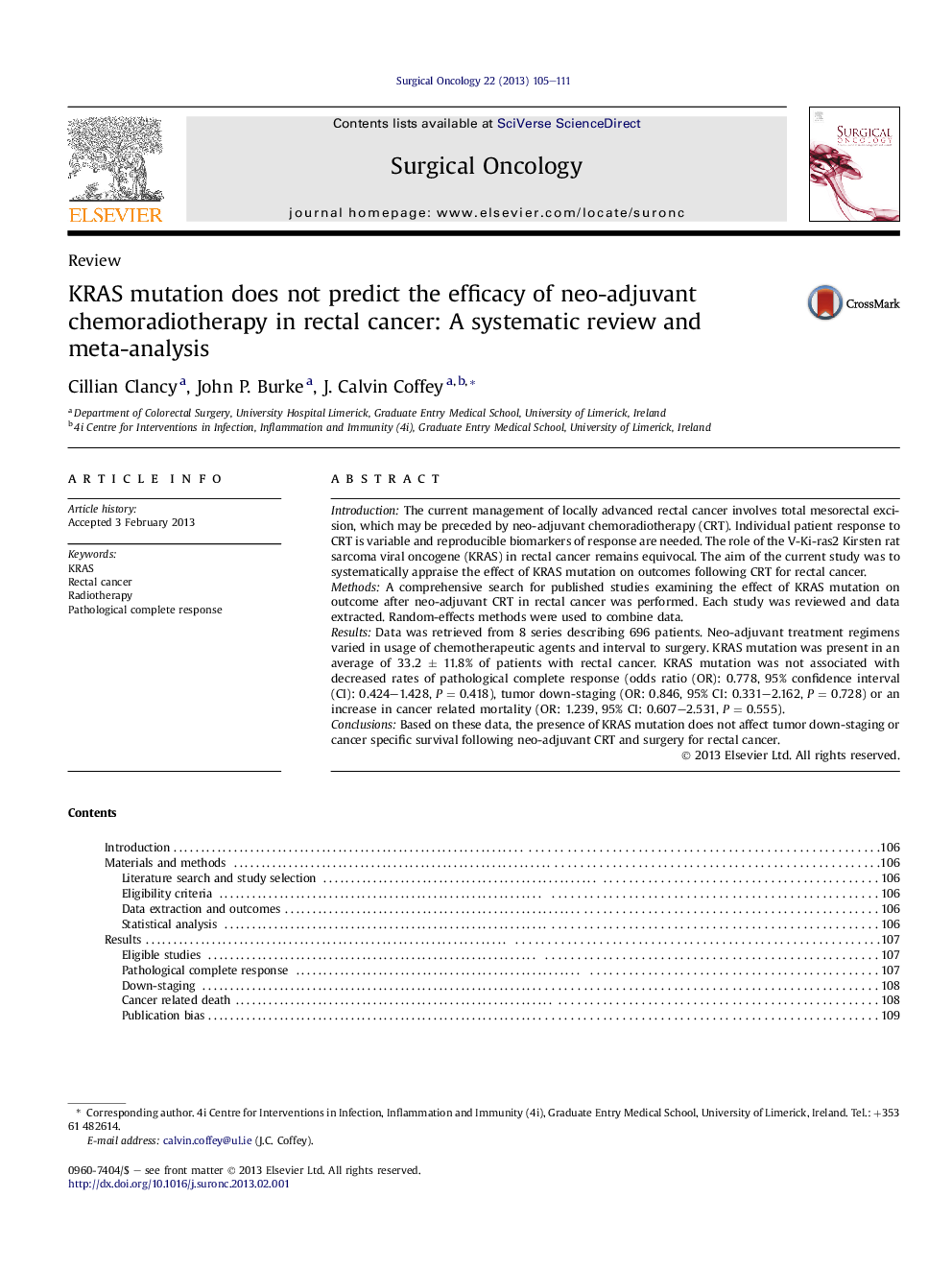| Article ID | Journal | Published Year | Pages | File Type |
|---|---|---|---|---|
| 3997900 | Surgical Oncology | 2013 | 7 Pages |
IntroductionThe current management of locally advanced rectal cancer involves total mesorectal excision, which may be preceded by neo-adjuvant chemoradiotherapy (CRT). Individual patient response to CRT is variable and reproducible biomarkers of response are needed. The role of the V-Ki-ras2 Kirsten rat sarcoma viral oncogene (KRAS) in rectal cancer remains equivocal. The aim of the current study was to systematically appraise the effect of KRAS mutation on outcomes following CRT for rectal cancer.MethodsA comprehensive search for published studies examining the effect of KRAS mutation on outcome after neo-adjuvant CRT in rectal cancer was performed. Each study was reviewed and data extracted. Random-effects methods were used to combine data.ResultsData was retrieved from 8 series describing 696 patients. Neo-adjuvant treatment regimens varied in usage of chemotherapeutic agents and interval to surgery. KRAS mutation was present in an average of 33.2 ± 11.8% of patients with rectal cancer. KRAS mutation was not associated with decreased rates of pathological complete response (odds ratio (OR): 0.778, 95% confidence interval (CI): 0.424–1.428, P = 0.418), tumor down-staging (OR: 0.846, 95% CI: 0.331–2.162, P = 0.728) or an increase in cancer related mortality (OR: 1.239, 95% CI: 0.607–2.531, P = 0.555).ConclusionsBased on these data, the presence of KRAS mutation does not affect tumor down-staging or cancer specific survival following neo-adjuvant CRT and surgery for rectal cancer.
